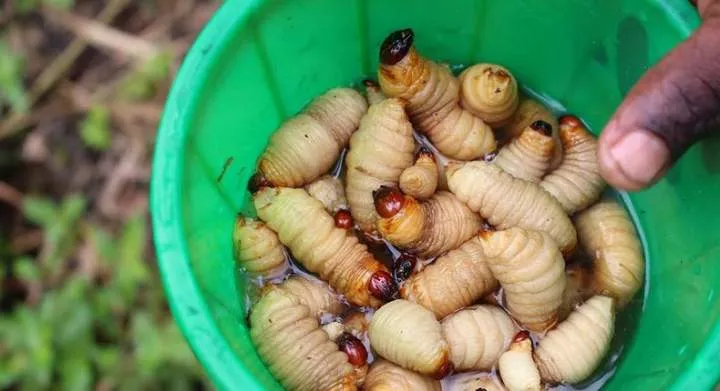
Discover the top 20 foods to avoid sleepiness while studying at night. Learn how to stay awake and focused with these energy-boosting choices. Say goodbye to feeling sleepy and unlock effective ways to avoid sleep while working late. Find out what to eat and what to avoid for better nighttime productivity.
How to Avoid Sleepiness While Studying at Night
If you find yourself burning the midnight oil to study or work, it's essential to stay awake and alert. Late-night studying can be challenging, especially when your body naturally starts craving sleep. Fortunately, there are ways to combat sleepiness and maintain your focus. One crucial aspect to consider is your diet. The foods you consume can play a significant role in either keeping you awake or lulling you into a sleepy state. In this article, we'll explore the top 20 foods that can help you stay awake at night, allowing you to make the most out of your study sessions and activities.
1. Coffee
Coffee is one of the most well-known allies for those seeking to ward off sleepiness. The caffeine in coffee acts as a stimulant, activating your nervous system and promoting wakefulness. On average, an 8-ounce cup of coffee contains around 95 milligrams of caffeine. However, it's important to note that the effects of caffeine can last for several hours, so it's best to avoid coffee consumption too close to bedtime.
2. Energy Drinks
Energy drinks are formulated to provide an instant energy boost, thanks to ingredients like caffeine, sugars, B vitamins, taurine, and guarana. While they can indeed provide a quick pick-me-up, they can also lead to restlessness and insomnia if consumed late in the day. For instance, a 16-ounce can of Red Bull contains 160 milligrams of caffeine, while a 5-hour Energy shot contains 200 milligrams.
3. Chocolate
Chocolate, particularly dark chocolate, contains caffeine and theobromine, both stimulants that can hinder sleep. The darker the chocolate, the higher the stimulant content. Opt for a chocolate treat in the afternoon instead of indulging in it late at night, as even 1-2 ounces of dark chocolate can contain around 20-40mg of caffeine.
4. Yerba Mate Tea
Yerba mate tea is derived from the leaves and twigs of the Ilex paraguariensis plant. Similar to coffee, it contains caffeine and theobromine. A cup of yerba mate tea, approximately 8 ounces, contains around 85 milligrams of caffeine, comparable to the caffeine content in a cup of coffee.
5. Green Tea
While green tea contains less caffeine than coffee or energy drinks, it still offers an energy boost with around 25-40 milligrams of caffeine per 8-ounce cup. The presence of L-theanine in green tea may help counterbalance some of the stimulating effects of caffeine, promoting a state of calm alertness.
6. Soda and Energy Drinks
Carbonated beverages flavored with sugar and caffeine, such as colas and energy drinks, can hinder your ability to fall asleep. A typical 12-ounce can of soda contains 30-50mg of caffeine. Opt for caffeine-free alternatives like ginger ale in the evening to prevent disturbances in your sleep cycle.
7. Alcohol
Although alcohol might initially induce drowsiness, it disrupts natural sleep cycles, leading to fragmented sleep later in the night. It's advisable to avoid alcohol consumption close to bedtime to ensure a more restful night's sleep.
8. Spicy Foods
Spicy dishes like chili, buffalo wings, and curries can cause indigestion and heartburn, making it challenging to achieve deep sleep. Additionally, these foods can raise your body temperature and metabolism, further hindering sleep. Save spicy meals for lunchtime to avoid nighttime discomfort.
9. Fatty Foods
High-fat foods take longer to digest, potentially leading to discomfort and sleep disruptions. They also trigger the release of stomach acids, which can result in reflux and heartburn. Opt for lighter options like lean proteins, whole grains, and vegetables in the evening.
10. Sugar Before Bed
Consuming sugary foods before bedtime can lead to fluctuations in blood sugar levels, affecting your sleep cycle and causing restless sleep. Minimize your intake of simple sugars and sugary treats, especially within a few hours of going to bed.
11. Tomatoes
Tomatoes contain lycopene, a compound that can trigger acid reflux in some individuals when consumed before lying down. The acidity of tomatoes can interfere with sleep quality, so it's best to enjoy tomato-based foods earlier in the day.
12. Citrus Fruits
While citrus fruits offer numerous health benefits, their acidic juices can provoke heartburn, indigestion, and reflux if consumed before bed. Additionally, the vitamin C content in citrus acts as a stimulant, potentially disrupting sleep. Consume citrus fruits earlier in the day to avoid these issues.
13. Cruciferous Vegetables
Broccoli, cabbage, Brussels sprouts, and cauliflower are part of the cruciferous vegetable family, known for their health benefits. However, they can also cause gas and bloating, which may interfere with your ability to sleep soundly. Include these vegetables in your lunch instead of dinner.
14. Protein-Rich Foods
Foods high in protein, such as meat, eggs, and beans, require more time and energy for digestion and metabolism. Consuming substantial protein portions close to bedtime can elevate your body temperature and disrupt your sleep. Aim to avoid heavy protein meals within two hours of bedtime.
15. Garlic
Garlic is packed with flavor and health benefits, but it contains allicin, a compound that can trigger heartburn and acid reflux. Additionally, the compounds in garlic stimulate digestion, potentially affecting your ability to sleep well. Limit your garlic intake close to bedtime for a more restful night.
16. Onions
Onions contain sulfurous compounds that can lead to digestive discomfort and heartburn, especially when consumed late at night. Minimize onion consumption before bed to ensure a peaceful night's sleep.
17. High-Sodium Foods
Foods high in sodium, such as salty snacks and processed foods, can lead to dehydration and disrupt your sleep cycle. Avoid excessive sodium intake in the evening to promote better sleep quality.
18. Caffeinated Teas
Certain teas, such as black tea and some herbal teas, contain caffeine that can interfere with your ability to fall asleep. Be cautious when choosing teas in the evening, opting for caffeine-free varieties like chamomile or rooibos.
19. Fried Foods
Fried foods are often high in unhealthy fats and can cause discomfort and indigestion. Consuming fried foods close to bedtime can lead to disrupted sleep. Choose lighter cooking methods for your evening meals.
20. Processed and Sugary Snacks
Snacking on processed and sugary foods before bed can lead to energy spikes and crashes, disturbing your sleep cycle. Opt for healthier snack options, such as nuts, seeds, or a small serving of Greek yogurt, to keep your energy levels steady.
In conclusion, maintaining a healthy and balanced diet is essential for promoting a good night's sleep. To avoid sleepiness while studying or working at night, be mindful of the foods you consume. While some foods can provide an energy boost, others can interfere with your sleep cycle. By making informed dietary choices and avoiding the foods listed above within a few hours of bedtime, you can optimize your chances of staying awake, alert, and productive during your late-night activities. Remember, achieving restful sleep is crucial for both your physical and mental well-being.
Frequently Asked Questions (FAQs) - Foods to Stay Awake at Night
Q1: What are some foods to avoid sleepiness while studying? A1: Incorporating foods rich in nutrients like protein, whole grains, and healthy fats can help you stay awake while studying. Opt for snacks such as nuts, Greek yogurt, and whole grain crackers to maintain your energy levels.
Q2: How can I avoid sleepiness while studying at night? A2: To avoid sleepiness during late-night study sessions, focus on consuming foods with moderate caffeine content, such as coffee, tea, or dark chocolate. Additionally, choose light and protein-rich meals that provide sustained energy without causing heaviness.
Q3: Are there ways to get rid of sleepiness instantly? A3: When combating instant sleepiness, consider consuming foods or beverages containing caffeine, like energy drinks or caffeinated teas. Keep in mind that the effects of caffeine vary from person to person, so moderation is key.
Q4: What can I do to stop feeling sleepy while studying? A4: In addition to consuming energy-boosting foods, incorporate short breaks for light stretches or brisk walks. These activities can increase blood flow and help you stay awake and alert while studying.
Q5: What should I eat to avoid feeling sleepy at night? A5: Opt for a balanced diet that includes a mix of complex carbohydrates, lean proteins, and healthy fats. This combination can provide sustained energy and prevent sudden drops in blood sugar levels that lead to sleepiness.
Q6: What foods can help me stay awake at night? A6: Foods with natural sources of caffeine, like coffee, tea, and dark chocolate, can help you stay awake. Additionally, high-protein snacks like nuts and seeds can provide long-lasting energy to keep you alert.
Q7: How can I choose the right foods to avoid sleepiness while studying? A7: Focus on foods with a moderate caffeine content and nutrients that support energy levels, such as B vitamins, iron, and omega-3 fatty acids. Avoid heavy, high-fat meals close to bedtime to prevent sluggishness.
Q8: Can certain foods help me stay awake and alert for late-night tasks? A8: Absolutely. Incorporate fruits like apples and berries for natural sugars, as well as whole grains like oats for sustained energy. Protein sources like eggs and lean meats can also contribute to increased alertness.
Q9: Are there any foods I should specifically avoid to prevent sleepiness? A9: Foods high in simple sugars and heavy carbohydrates can cause energy crashes and contribute to sleepiness. Additionally, stay away from fatty and fried foods, which can slow digestion and make you feel sluggish.
Q10: How can I create a sleep-friendly diet while staying awake at night? A10: Focus on portion control and nutrient balance. Opt for smaller, well-balanced meals that include lean proteins, complex carbohydrates, and healthy fats. Hydration is also essential for maintaining alertness.

















Comments